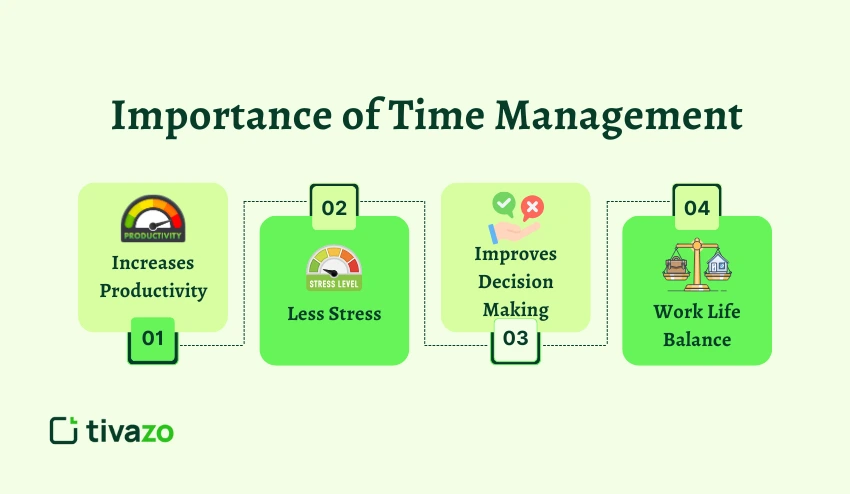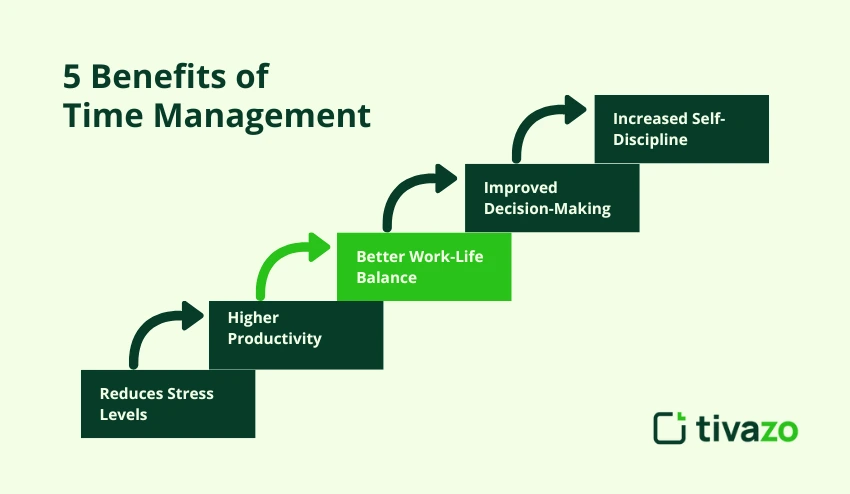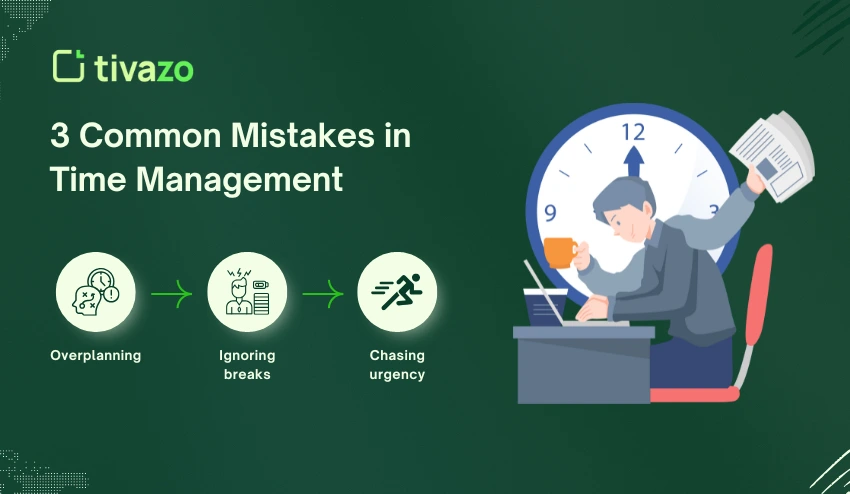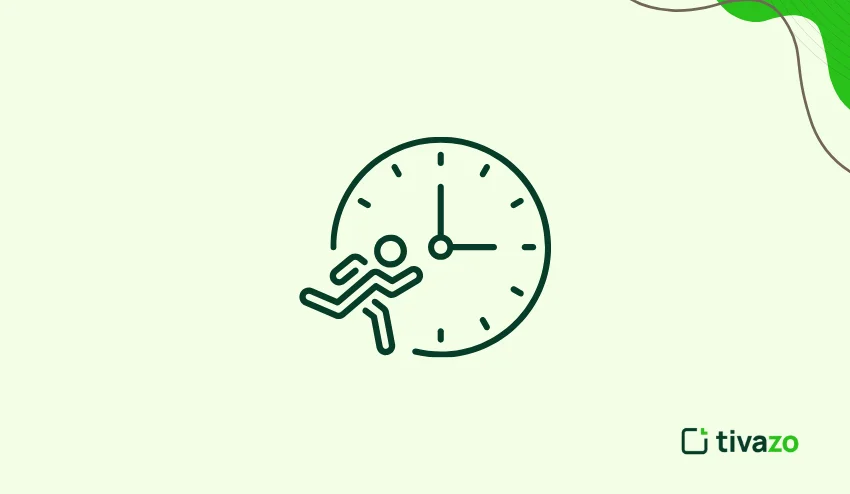Time. You cannot keep it. You cannot extend it. You can just spend it. Have you ever felt that your day was over before your work was done? You are not alone. Being a person who has worked on several projects, with several clients, and deadlines, I can definitely say: the ability to manage your time is the most useful habit you can develop. Learning the importance of time management is a must.
What is time management? It is the act of planning and regulating the amount of time to be spent on certain things. It is not only about doing more. It is all about less stress, better focus and more time on what really matters.
And here is how you do it. This guide is going to show you 7 effective time management strategies with real life examples and practical tips that you can apply immediately.
What Is Time Management?
Time management refers to the planning, organizing and controlling of time that you use to accomplish certain objectives. It is the matter of conscious decisions rather than responding to what appears in your day.
You only get 24 hours in a day. Time management assists you in determining how to utilize those hours in order to not always be playing catch up or trying to juggle too many things at one time.
This is not about doing more. It is about doing what is important, at the right time and having space to rest, concentrate and be balanced.
Time Management Is Not:
- Doing everything at the same time
- Packing your calendar to the second
- Operating on caffeine and eleventh-hour stress
Rather, effective time management appears as follows:
- Doing what is important rather than what is urgent
- Division of big objectives into small and achievable ones
- Saving your time against distractions and useless work
As a freelancer, student, manager, or entrepreneur, the way you handle your time is the way you work, the way you feel and the way you get ahead.
The 4 Ps of Time Management
Being good at time management is not only about ticking the boxes. It is about developing a sticky mindset. This is where the 4 Ps of time management come in, a workable system that keeps you on course day in and day out.
1. Prioritization
You do not always have to do what is on your to-do list. Smart time managers know what is time management by understanding what’s worth doing. Study to know what is most important.
Ask yourself:
- What tasks have the biggest impact?
- What’s urgent vs. what’s just noise?
Rank tasks according to importance and urgency using such time management techniques as the Eisenhower Matrix or ABCD method.
2. Planning
When you are aware of your priorities, plan your day or week.
Good planning includes:
- Setting daily goals
- Blocking time for focused work
- Leaving space for breaks and unexpected tasks
This can be made easy and repeatable with the help of such tools as digital calendars or daily planners.
3. Productivity
This is where execution happens. Productivity is doing more with less-less effort, less time, less stress.
To boost your productivity:
- Get rid of distractions (phone alerts, loud environments)
- Use the Pomodoro Technique or time blocking
- Keep a record of the time tasks really take as compared to the time you estimated they would take
4. Patience
Time management is not a quick fix, but a habit. Not every day will go according to schedule-and that is okay.
Give yourself time to develop consistency.
- Don’t expect perfection
- Reflect weekly on what worked and what didn’t
- Adjust and try again
This final “P” helps you commit to the long game of what time management is all about: building control, not chaos.
Importance of Time Management
Before we get into the how-to, it is important to take a step back and see why time management is something we should master. It is not only about fitting more in your schedule or doing everything on your list. It is about how you manage your time so that you feel more in control, less overwhelmed, and on the whole more fulfilled.

Some of the greatest importance of time management are the following:
- Less stress: Planning your day will help you to avoid the feeling that you are always in a rush or behind schedule. Such clarity of mind automatically reduces anxiety and keeps you calm even when some unforeseen difficulties emerge.
- Increases productivity: Time management techniques can assist you in focusing on high-impact activities rather than busywork. You are not responding to what is happening, but rather you are working on what is important.
- Enhances work-life balance: With an organized and effective work, you will be less tempted to allow it to spill into your evenings or weekends. That frees up some time to rest, pursue hobbies, and spend quality time with the ones you love, and improve your work-life balance.
- Enhances decision-making: You will make better decisions and feel more confident in them because you will not have to make last-minute decisions and rush to make decisions in panic mode.
After all, time management is not about being busy; it is about being intentional. It is deciding how to spend your time according to your goals, values, and energy, not what is urgent or in front of you. The more you can manage your time, the more freedom you will, in fact, generate.
For more details on the importance of time management, read 8 Essential Tips on the Importance of Time Management
You understand now the importance of it so now we can get into the actual strategies that will make you take control of your time starting today.
7 Proven Time Management Techniques to Reduce Stress & Boost Productivity
Technique 1: Set Priorities using the Eisenhower Matrix
Not every task is equal. Some turn the dial. Others are simply urgent. The Eisenhower Matrix will assist you in organizing your everyday duties into four quadrants:
- Important and urgent- Do it now.
- Not urgent but important- Schedule.
- Important but not urgent- Delegate.
- Not urgent or important- eliminate.
The approach among the time management techniques compels you to prioritize in the long term rather than the clamor of the moment. I would use this weekly in planning my calendar.
Technique 2: Time Blocking Your Calendar
Time blocking was one of the largest game-changers in my routine. Rather than maintaining an open-ended to-do list, reserve blocks of time on your calendar to do particular work.
Here’s how:
- Block deep work (no meetings, no emails).
- Insert buffer time between meetings.
- Add in breaks, emails, administration.
Allotting time to each task will make you more likely to complete tasks without distraction.
Technique 3: Use the 80/20 Rule (Pareto Principle)
The Pareto Principle says that 80 percent of the results comes from 20 percent of work. Find out what 20 percent of your work produces the greatest value. Stay longer there.
As an example, you are a freelancer and 80 percent of your income is generated by 2 clients, then focus on them. This assists in reducing the time on low impact activities.
Continue to review your activities on a weekly basis in order to match your time with what is really important.
Technique 4: Limit Multitasking
Multitasking is productive. However, according to science this is not the case. Switching tasks in fact decreases productivity by as much as 40 percent and causes mental fatigue.
Instead, attempt to batch like tasks:
- Respond to emails on scheduled times.
- Afternoon group calls.
- Do creative work at a sitting.
By remaining concentrated on a single task, results of higher quality are achieved, and stress is reduced.
Technique 5: Plan Tomorrow, Tonight
A very effective habit is to plan your day the previous night. It takes away the morning decision fatigue and gives a sense of direction.
Before bed, ask:
- What are my top 3 priorities tomorrow?
- Do I have any meetings to prepare for?
- What blocks can I reserve for deep work?
Doing this helps you start your day strong and prevents wasting time figuring out where to begin.
Technique 6: Apply the Two-Minute Rule
This rule is simple and popularized by David Allen:
If a task takes less than 2 minutes, do it immediately.
This helps prevent small to-dos from piling up and cluttering your to-do list. I apply this when reading mails or sorting files. It keeps my task lean and actionable.
For bigger tasks, break them down into 2-minute starting points. Getting started is often the hardest part.
Technique 7: Audit and Improve Weekly
Effective time management is not a one time thing, but it changes as your objectives, duties, and everyday problems change. What will work this week may not work next week. That is why a weekly review can be a game changer.
Ask yourself:
- What did I spend most time on?
- Did I achieve what I planned?
- What was productive, what was a waste?
The practice helps you find out what is and is not working. Track your time to have a clear idea of how you are really spending your time. Even short-term tracking will expose inefficiencies and indicate where you can do better.
Understanding how you use your time reinforces the importance of time management. You start to see patterns, you start to see distractions and you make better choices on how to organize your day. Using proper time management techniques will help you get the benefits of time management.
Benefits of Time Management
Knowing the importance of time management goes beyond just being organized. It has a direct impact on the way you feel, the way you work and the way you live. By being in control of your time, you open the door to a number of key benefits:

- Reduces Stress Levels
When you have a plan of the day and what you are supposed to do, there is less mayhem. Less rush at the last minute implies less anxiety. - Higher Productivity
You get more done in less time. Clear priorities help you focus on high-impact tasks rather than just staying busy. - Better Work-Life Balance
You can allocate time to personal and professional objectives with proper planning- without one dominating the other. - Improved Decision-Making
With time buffers, you can make considered decisions as opposed to taking pressure decisions. - Increased Self-Discipline
The framework of good time management creates stronger daily habits and routines, which accumulate over time.
All benefits of time management leads to a more intentional, balanced, and effective life. Let’s now explore how to achieve that with actionable techniques.
Common Mistakes in Time Management
Even with the best intentions, many people fall into subtle habits that sabotage their productivity. Recognizing these traps is crucial if you want to master the importance of time management and experience its full potential.

- Overplanning: Packing your day with activities morning to night might appear to be effective, but it usually fails. Life is uncertain-meetings overrun, work drags, and surprises come. These factors might cause stress and anxiety Leaving buffer time to transition, interruptions and thinking is one of the best time management techniques. It is not an option to be flexible, it is a necessity.
- Ignoring breaks: Some people think that taking no breaks helps to increase productivity, yet it causes mental exhaustion and inability to concentrate. Sustainable energy is one of the major advantages of time management. Effective short breaks will make you recharge and feel alert throughout the day.
- Chasing urgency: It is tempting to get lost in answering every notification or request that appears. However, not all that screams is important. One of the most effective time management techniques is learning how to differentiate between the urgent and the really important. Do work that will help you achieve your long-term objectives rather than responding to every fire drill.
Recognizing these patterns is the first step to improving how you handle your time.
Conclusion
What is time management really? It’s a collection of small daily choices. And like any skill, it improves with practice.
Start with one technique this week. Maybe you begin planning your day the night before. Or block 2 hours each morning for focused work.
Whichever path you take, remember this: your calendar reflects your values. Use these management strategies to make it count.




